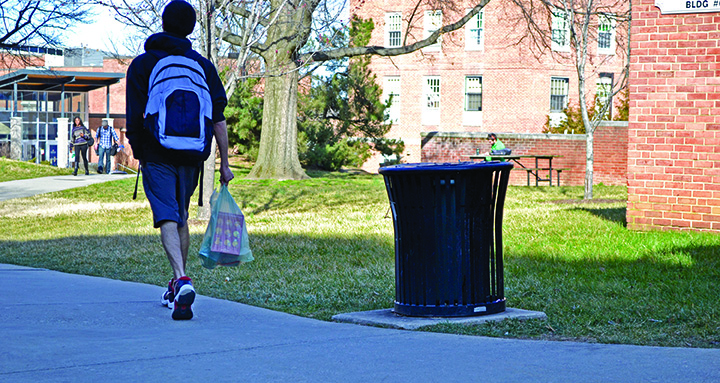
Plastic bag tax
For the second time, the SGA voted 26 to 4 in favor of implementing a 5-cent disposable bag tax, supporting the county’s latest attempt to follow in the footsteps of Montgomery County and Washington.
The bill to implement the tax in the county fell short of making it to the Maryland General Assembly, failing to pass the House Environmental Matters Committee in March by one vote. Opponents said the tax disproportionately hurt low-income consumers and reusable bags could pose a health risk. However, county officials are planning to push the issue again at a county house delegation hearing Saturday at Prince George’s Community College.
“We see [the tax] as an inevitability in P.G. County and the state,” said James Jalandoni, Student Government Association governmental affairs director. “We want to make sure this happens sooner than later, because the sooner it happens, the more benefit will come about.”
Washington implemented a 5-cent bag tax on Jan. 1, 2010, and saw an 86 percent reduction of plastic bag distribution within a few weeks of the law being put in place. Montgomery County did the same exactly two years later, collecting $154,000 of revenue within the first month.
Plastic bag use has continued to decline in Washington. According to The Examiner (Washington), the city brought in $1.6 million from the bag tax last fiscal year, which ended in September, compared to $1.8 million in revenue in 2011.
“The key here is reducing and reusing,” said Matthew Popkin, SGA’s South Campus Commons representative. “It’s not that hard to get into the habit of bringing reusable bags; they’re convenient — you can incorporate them into your life.”
Each year, according to The Washington Post, the United States uses more than 100 billion plastic bags, along with 10 billion paper bags — the equivalent of 14 million trees. The tax is meant to push state residents to switch to sustainable alternatives, such as reusable bags, as well as to generate revenue to support environmental initiatives in the county.
Many cities and counties throughout the country, including several in Colorado and Alaska, are implementing similar disposable bag taxes — many costing 10 to 20 cents per bag. Other cities in some states, including California and New York, have banned plastic bags.
“The disposable bag fee has been a proven, working solution to the issues that disposable bags have been presenting in our area,” said Jalandoni. “It has been proven in D.C. and Montgomery County to reduce disposable bag use by upwards of 70 percent, and has raised hundreds of thousands of dollars in revenue for restoration projects in the Chesapeake Bay, the Anacostia River [and] the Potomac River.”
The tax may also “dramatically” reduce the number of plastic bags that wind up in the area’s rivers, said Maura Duffy, a junior environmental science and policy major.
“We really need as much help as we can get helping the river water quality around here,” Duffy said. “And it’s easy enough to get those reusable bags now.”



